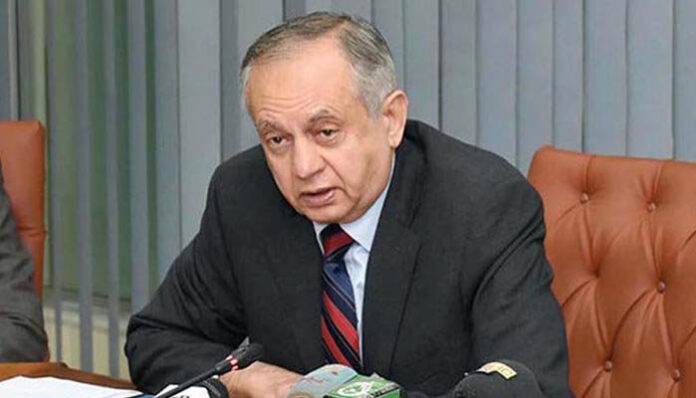ISLAMABAD: The Ministry of Commerce (MoC) and Monday said that it would start discussions with relevant stakeholders from next month to develop a three year roadmap for tariff rationalisation.
Earlier the MoC had claimed that the rationalised tariff, initially framed by the National Tariff Commission (NTC) would be included in the Budget 2020-21 after due consultation with all stakeholders. However the process could not be completed in time.
On Monday, a meeting regarding tariff policy chaired by the Adviser to the Prime Minister on Commerce and Investment Abdul Razak Dawood was held at the MoC. The meeting was attended by secretary commerce, NTC chairperson and other concerned officials.
During the meeting, the adviser to the prime minister on commerce and investment appreciated the efforts of Tariff Policy Board (TPB) and Tariff Policy Centre (TPC) of the NTC for the successful implementation of National Tariff Policy in the Budget 2020-21 through the reduction of duties on around 2,000 tariff lines, comprising basic raw materials and intermediates goods.
He said tariff rationalisation is vital for export-led industrialisation in Pakistan and that discussions would start with the relevant stakeholders from next month to develop a three year roadmap in this regard.
The adviser further emphasised the importance of tariff rationalisation to increase the competitiveness of the domestic industry including the exports sector through duty free access to imported raw materials and intermediate goods, which he said will eventually increase employment opportunities in the country by attracting investment in the manufacturing sector.
He said that the stakeholder consultation process should lead to a constructive roadmap to develop an export-led ‘Make in Pakistan’ program.
Razak Dawood also said that distortions in the domestic price structure should be reduced in order to increase the welfare of the consumers. He stressed to remove tariff anomalies in the tariff structure through analysis of value chains.
He further directed the Tariff Policy Centre NTC to conduct detailed studies and suggest a three year tariff rationalisation roadmap initially for the iron and steel, plastic, engineering, pharmaceutical, chemical and textile sectors.
According to officials, NTC on the directions of Razak Dawood was planning to conduct studies on the above mentioned sectors to develop a three year tariff plan.
In order to formulate a three years tariff plan, the NTC will identify complete value chains, identify potential stakeholders, collect data from the primary and secondary sources, visit relevant industries, chambers and associations for collection and verification of data and conduct public hearings. The proposed three-year tariff plan will be submitted to the Tariff Policy Board for approval and inclusion in the annual budget.
Earlier on July 16, Pakistan Association of Large Steel Producers, in a letter sent to the Federal Minister for Industries and Production Hammad Azhar, had informed that it was about to start export of steel to the neighboring countries in a bid to enhance Pakistan’s exports. However, as a nascent export-oriented steel sector, it had urged the government to provide policy support and a predictable road-map for the tariff structure.
























